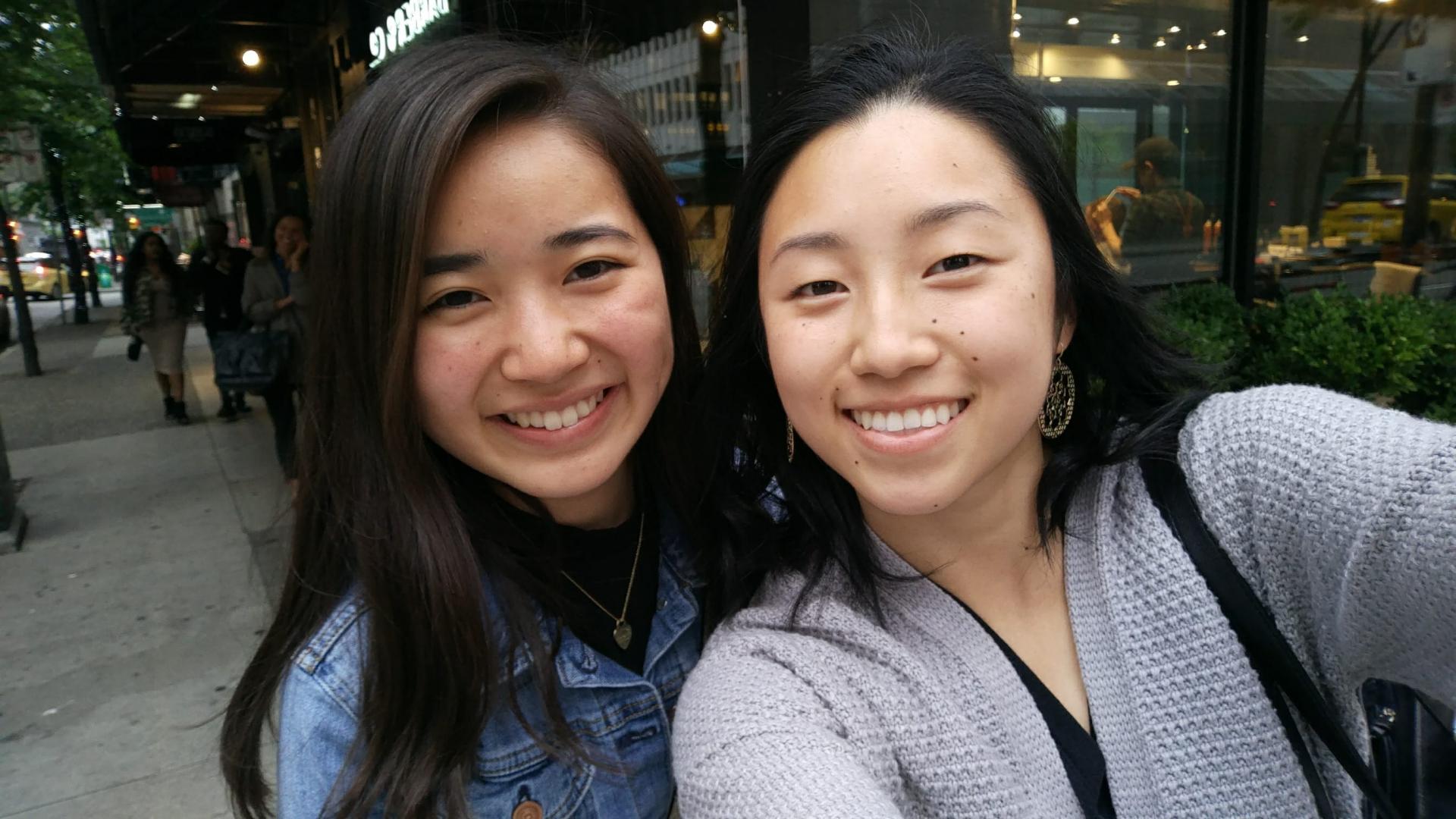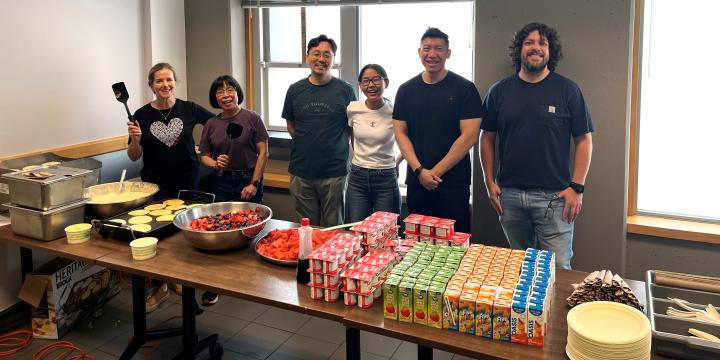
Many people who are new to mentorship think that mentoring someone is a one-way street of giving time and advice, ultimately enriching the mentee’s life. New mentors might believe that they’re expected to give but not receive anything back in return.
My name is Dina, and I’m returning for the third time as a mentor to the YWCA’s High School Mentorship Program. As I’ve recently made my decision to return for yet another year, I wanted to share five reasons why you should consider becoming a mentor too this year.
Here’s why becoming a mentor actually enriches the mentor’s life too:
You become more grateful for what you have.
How often have we complained about our careers? You say, “I’m having some trouble with some coworkers lately,” or “I'm so overworked that I'm not sure how long I can continue doing this.”
I remember doing an office tour with one of my mentees in 2018. I thought that showing her the office might be boring, because I felt like nothing was exciting to me anymore. But when she got here, she was fascinated at things that hadn’t even crossed my mind, like how nice the boardroom in my government office was. Seeing that fresh perspective made me realize how lucky I was. I had been taking my job for granted and I had forgotten how hard I worked to get to where I was.
You learn leadership skills that you can apply in your professional life.
As a mentor guiding someone who is younger, you gain leadership skills that can help you in your professional career. Have you ever wanted to train someone? Or hire an intern at work? Or figure out how you can lead your team better?
The more I talked to my mentees, the more I learned how to communicate better, how to inspire self-confidence in them, and how to give direction—without bossing them around. At the time, I never had anyone report to me at work. I was appreciative of my mentoring relationships; I believed that those would prepare me for the future when I did have my own team.
You become a better listener and more empathetic.
I generally found that it’s easy to listen to friends and coworkers, and be empathetic towards them because I can relate to their current experiences. When I started mentoring however, I noticed that I needed to adjust the way I listened. My mentees were in grade 11 or 12, preparing to go to university. They were in a very different life stage than me, and although I was, at some point, in that same life stage previously, I found it sometimes difficult to relate to them. I had forgotten what it was like to be a teenager, even though I was their age just eight years ago.
I realized that as a mentor, I had to really step into their shoes and get into their world to understand them, before I could give any guidance. The experience stretched me to look at things from a different perspective and become more empathetic.
You become a more humble and compassionate role model.
At the very beginning of mentoring, I sometimes fell into an unhealthy mindset of feeling like I was above my mentees: I had already been there, done that. Got an upcoming math test? No problem! Applying for university? That’s easy! But this kind of mindset is so destructive in mentor-mentee relationships.
Very early on, I realized that I had to let go of my pride that I had “done it all” and remember what it was like to be where they were. Thinking back, I indeed had many of the same problems they had. I learned to be more humble and compassionate, which are character traits I hope to continue building as I continue to mentor for the YWCA.
Bonus: You get to meet other mentors and grow your professional network.
I left this one for last because it’s one of the more “selfish” reasons to join a mentorship program—but still a valid reason. Although I knew that my main purpose was to serve my mentees and help them grow professionally and personally, I looked for opportunities to connect with other mentors during the monthly YWCA-organized sessions.
I thought, why not try to meet a couple of other career-driven womxn and see if there are ways we can support each other? One time, my mentee and I attended a panel on non-traditional careers for womxn, after which I connected with one of the panelists on LinkedIn. We arranged a coffee meeting and now we are good friends that support each other professionally.
"The more I talked to my mentees, the more I learned how to communicate better, how to inspire self-confidence in them, and how to give direction."
There’s no doubt that mentorship is a two-way street of giving and receiving. Sometimes, as a mentor, it’s harder to see where you benefit—but if you dig deeper, you’ll realize that mentorship is an incredible way not only to impact someone else’s life, but to build your own character, learn new skills, and network with like-minded womxn.
As I enter into my third year as a mentor and support another student, I’m looking forward to becoming a better version of myself.
Learning never stops.
Dina Lu is Calligrapher and Creative Business Coach based in Vancouver, BC. She specializes in teaching public and corporate team-building calligraphy workshops in Vancouver, as well as coaching calligraphers around the world on how to turn their creative passions into profitable businesses. Previously, she worked in international trade for different government departments. She has a Bachelor of Commerce from the University of British Columbia. You can find her at www.dinacalligraphy.com, on Instagram or on LinkedIn.
Become a Mentor
Share your experience and provide guidance and support to help shape the career of a young woman, non-binary or trans youth in your community.
Contact the High School Mentorship team at mentorship@ywcavan.org or phone Program Supervisor Dvorah Silverman on 604 209 6355.
Or, find out more.

